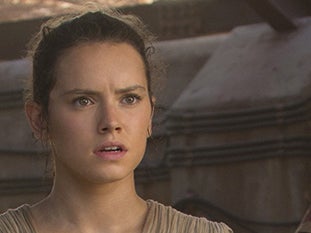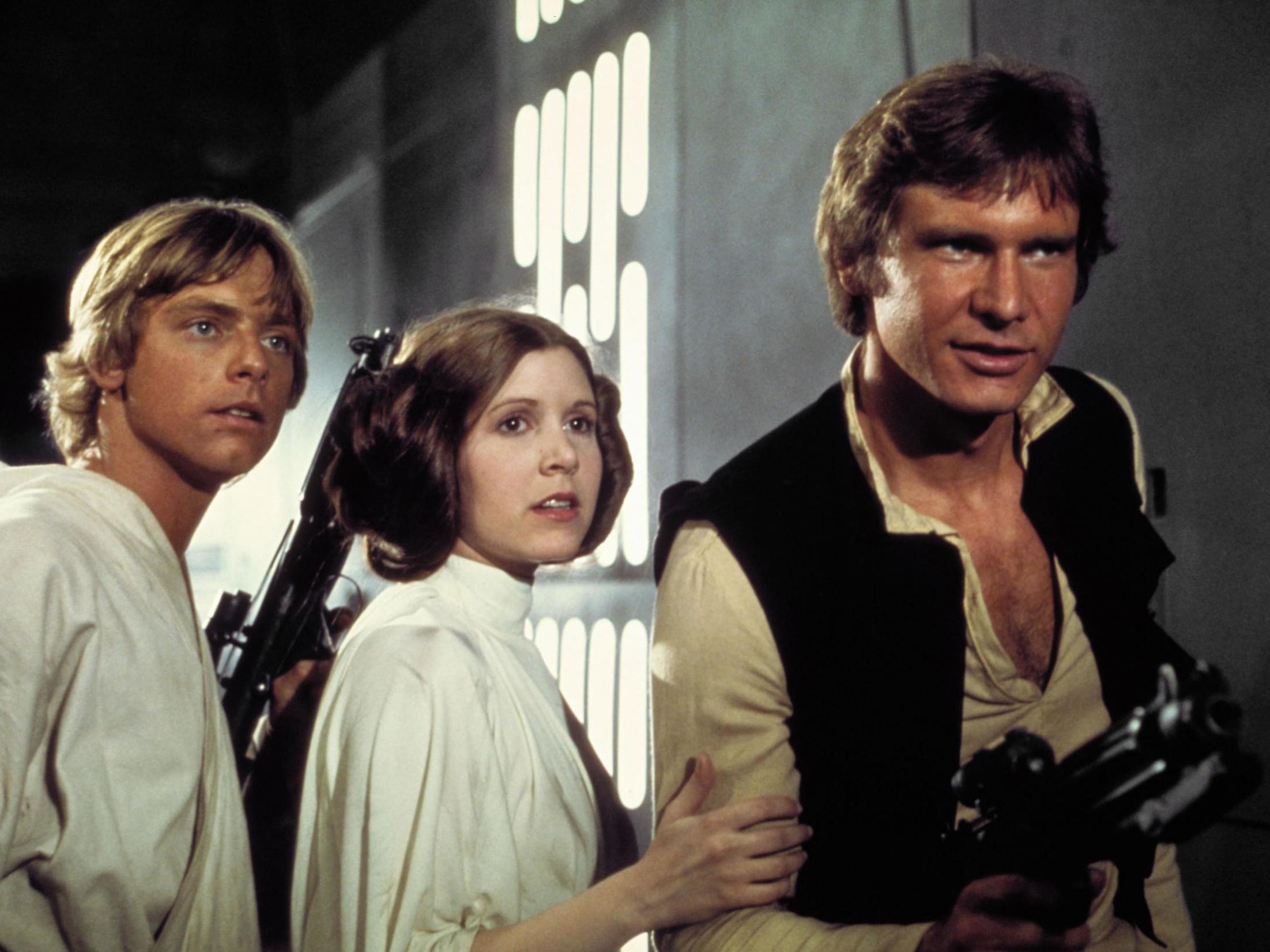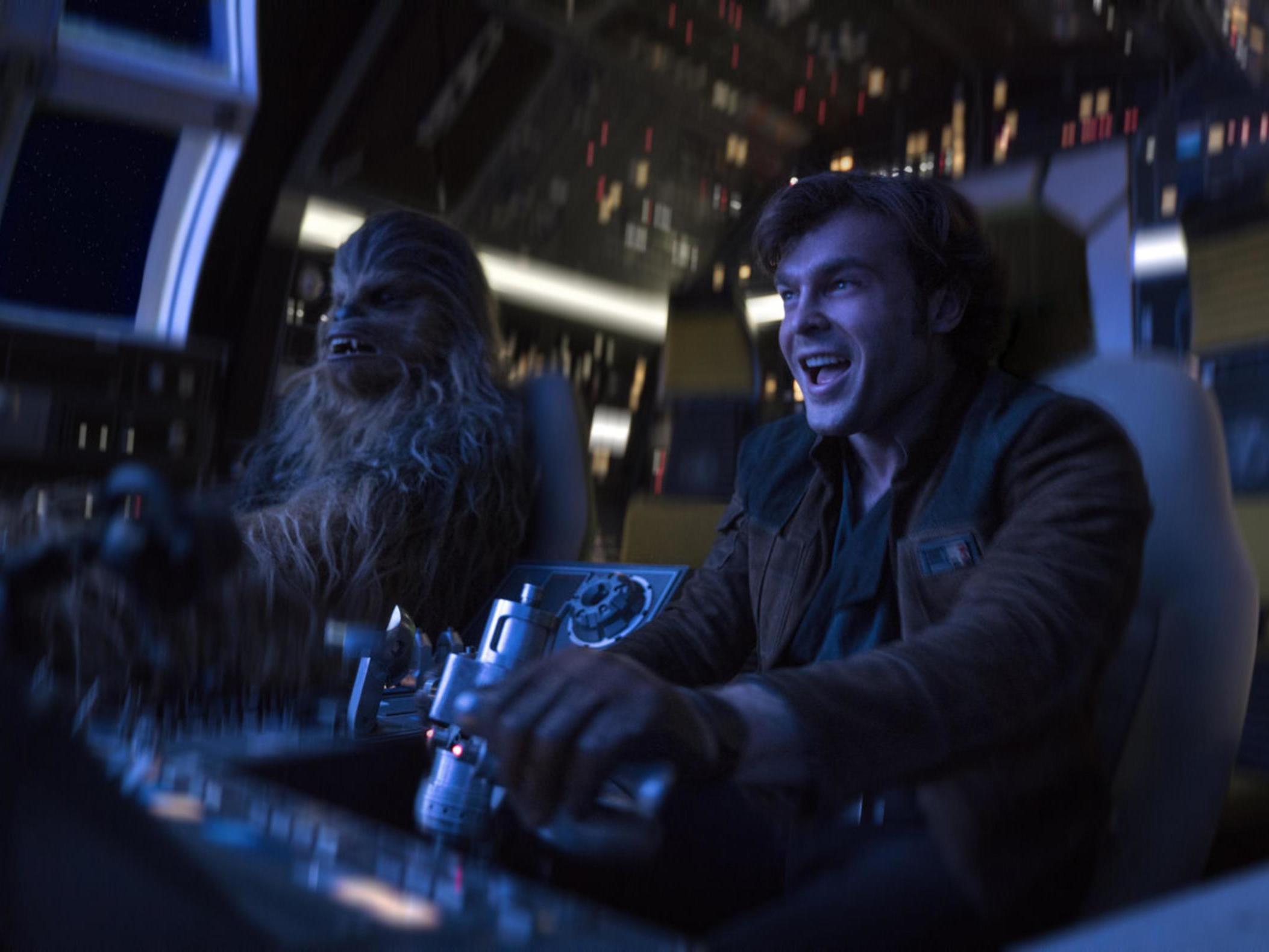If the new Star Wars trilogy has a legacy at all, it probably won’t be to do with the cast
Actors in the Star Wars movies haven’t exactly been cursed, but the franchise has always been a barometer for what makes someone a movie star, Adam White writes


As Star Wars heroine Rey, Daisy Ridley headlines one of the most anticipated blockbusters of the year, a film that will close out 2019 as well as a trilogy of movies that have already made more money than God. She will probably disappear straight after the credits roll.
“I’m not really scared,” Ridley told Metro last week, when asked about what she’ll do next. “I’m already involved with other awesome things but I’m sure I’ll always be compared to Star Wars, and I’ll always be thankful for what I’ve been able to do.”
Ridley’s problem isn’t entirely unique. In a cinematic culture of franchises, sequels and intellectual property, the actors themselves have become somewhat secondary – stars who are recognisable but not individually powerful. Ridley isn’t much different from the likes of Chris Hemsworth, Chris Evans or Jason Momoa, either – all of whom have anchored billion-dollar superhero movies, but who have struggled to pull in audiences on their names alone.
But what is interesting about the recent press for this month’s The Rise of Skywalker is the feeling of resignation hanging over much of its cast. Mirroring Ridley’s acceptance of her probably less starry and definitely Star Wars-less future, her co-star John Boyega has lately been vocal about his disappointments with the franchise that brought him international fame. He said last week that he wished the trilogy’s central trio, which comprises Rey, Boyega’s Finn and Oscar Isaac’s Poe Dameron, were better developed.
“I guess in the original Star Wars films there was much more of a trio feel where it was essentially about Luke’s journey, but [with] Han and Leia there was a strong dynamic,” he explained. “I do feel even after three films still, we don’t know them as much as we got to know Han, Luke and Leia.”
Boyega’s stance is part of a noticeable strand of franchise dissatisfaction that has cropped up during press for the new film. Most of it, to the consternation of some fans, has revolved around The Last Jedi – a divisive entry in the series that both Boyega and JJ Abrams have since expressed unease with. But Boyega’s comments also nod towards a largely unspoken truth – that this trilogy of films and the people that populate them, while adored by many, also haven’t had the cultural legacy of their predecessors. It’s most noticeable in the wavering off-screen fortunes of our ostensible heroes.
Considering her position as the heartbeat of the new Star Wars movies, Ridley hasn’t managed to break out of the franchise as a whole – she was lost in the ensemble of Murder on the Orient Express, and her panned Shakespearean star vehicle Ophelia was quietly released last month to little fanfare. Chaos Walking, an expensive sci-fi movie in which she stars alongside Spider-Man’s Tom Holland, was filmed in 2017 and remains without a release date, following rumours of disastrous test screenings and a series of emergency reshoots.
Boyega hasn’t transferred his Star Wars fame into an abundance of great parts, either. It’s important to note that, despite Ridley’s head-in-hands claims that they are basically the same person and share the exact same amount of privilege, Boyega is operating in an industry that still struggles to accept dark-skinned actors of colour as viable movie stars. It means that the unwanted and unseen Pacific Rim: Uprising, the closest thing he’s had to a star vehicle outside of Star Wars, was just as likely all he was offered as it was a genuine choice. But he’s also been, like Ridley, a bit of a void at the centre of the Star Wars movies – albeit ill-served with characters who still exist more as abstract ideas than as fully breathing people.

Oscar Isaac, meanwhile, has had a run of bad luck since joining the Star Wars family – encased in distracting purple headgear in X-Men: Apocalypse, wasted in the ensemble casts of a pair of Netflix flops (Triple Frontier and Operation Finale) and barely surviving the disastrous weepie Life Itself. Given where he began in the years prior to the franchise, starring in modern classics like Inside Llewyn Davis and Ex Machina, it’s been disappointing to see him flounder.
It goes without saying that Adam Driver has emerged as the biggest star of the new trilogy, but it would also be a disservice to Driver himself to imply Star Wars made his name. One of our finest actors, with a thrilling and combustible screen presence, he was magnetised to auteurs and prestige cinema long before Lucasfilm came calling. And with Marriage Story dominating Twitter and at the centre of awards season conversation, Driver’s presence in The Rise of Skywalker feels like something of an after-thought.
But whether you consider Driver to have been made by Star Wars or a natural-born star that the franchise was lucky to get, he has long been anointed the new trilogy’s Harrison Ford – its sole breakout, and the only one not affected by the so-called “Star Wars curse”.
Said curse, which has argued that professional and personal misery has somehow cosmically befallen everyone in the movies but Ford, has always been bogus, or at the very least offensive. Particularly when Carrie Fisher’s battles with addiction, or Jake Lloyd’s personal struggles years after he was widely mocked for his performance as Anakin Skywalker in The Phantom Menace, have been cited as proof of its existence.

It does, however, speak to something larger than Star Wars as a whole. The franchise has always been a barometer for what makes someone a bona fide movie star – not just a good actor decent enough to secure a single part, but charismatic enough to singularly melt the screen, who is alluring and fascinating to watch, and who you are eager to see over and over again. It’s why Ford transitioned so smoothly into Indiana Jones and the likes of Witness and Working Girl, and it’s the reason Natalie Portman escaped Star Wars unscathed – her natural buoyancy and screen presence overcoming the horrible writing she was often saddled with. Hayden Christensen and Solo’s Alden Ehrenreich, both less charismatic performers, never stood a chance.
It’s why Mark Hamill took so long to find his niche, too – not as a movie star headlining his own films, but as a character actor and phenomenally skilled voiceover performer. And, finally, it’s why Carrie Fisher became a legend. Not because she was merely a wonderful Princess Leia, but because her wit, voice and unflinching honesty about addiction and mental illness demanded she be seen as more.
Boyega has a point in that the new trilogy’s central trio have never been blessed with the same sharp dialogue or warmth of Luke, Leia and Han, and probably haven’t affected pop culture in the same way as a result. But based on the history of the franchise’s stars and the careers they had in its wake, the most glorious actors, the ones truly built for the big screen, somehow always manage to claw their way out of it. And if they aren’t or haven’t been able to, it’s probably not the fault of their movies.
Join our commenting forum
Join thought-provoking conversations, follow other Independent readers and see their replies
Comments
Bookmark popover
Removed from bookmarks